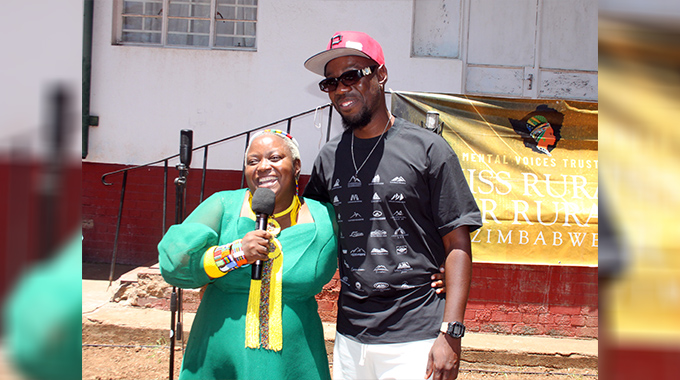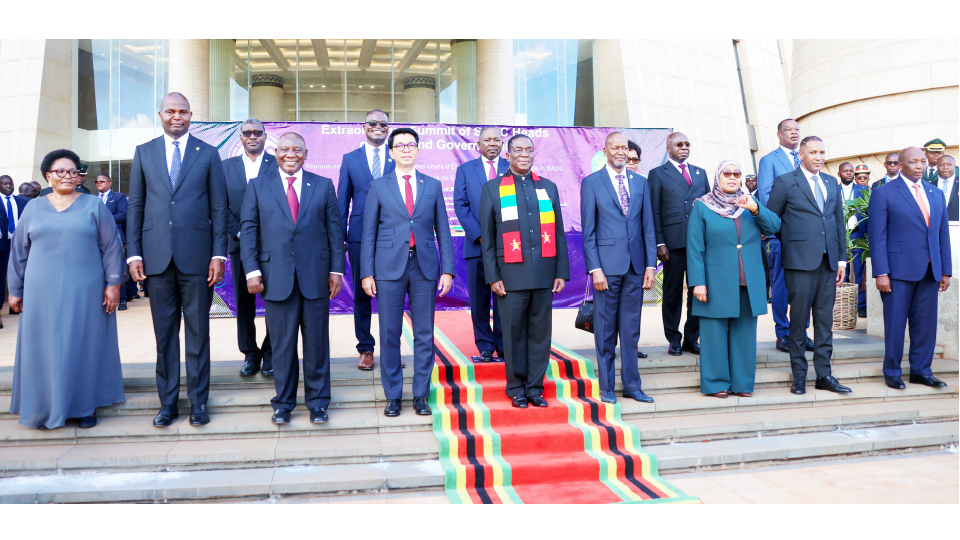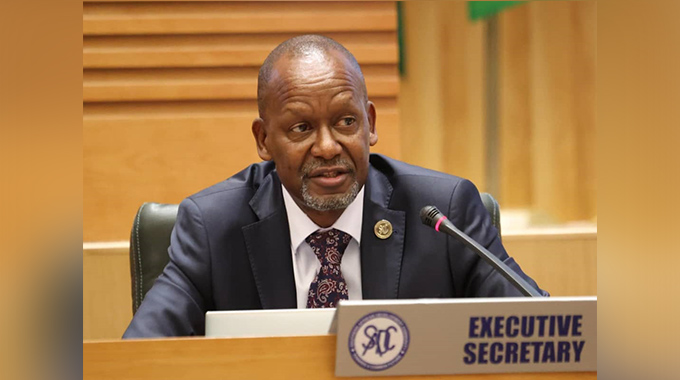
Tichaona Zindoga Herald Correspondent
US President Donald J Trump’s “second coming” may turn out to become a key stimulant and opportunity to deepen China-Africa relations, with huge implications for countries like Zimbabwe.
To “push Africa into the arms of China”, as some commentators could put it, may not be something that the maverick leader may have planned, but would Trump care less!
The question is, just how can Trump’s presidency in the US catalyse China-Africa relations, which had already reached massive scale in terms of economic and geopolitical cooperation?
First, the context. Just days ahead of Trump’s inauguration on January 20, his outgoing predecessor made a number of foreign (and domestic) policy pronouncements that to all intents and purposes sought to influence how the next administration would conduct business hoping for some kind of continuity of the Biden era.
In his speech at the State Department, Biden extensively pitched the US as engaged in an Armageddon-like competition with China over global dominance.
America views itself as a hegemonic superpower and does not hide its desire for the continuation of the status quo. On the other hand, China, for all its rising stock and growing economic and military power, does not see itself as the world’s next hegemon, and has continuously assured the world, including the US, that it does not intend to use its power to dominate others.
The US buys none of that. At the State Department, Biden revelled in what he claimed to be US’ strength over “weakening” rivals like Russia, Iran and Syria. He also boasted that he had built alliances to counter China on various fronts.
Said Biden: “Today, I can report to the American people: We’re in a better strategic position in the long-term competition with China than we were when I took office. You all recall many experts believed — were predicting it was inevitable that China’s economy would surpass ours. According to many predictions, that would happen by the year 2030 or shortly thereafter…Now, according to the latest predictions on China’s current course, they will never surpass us. Period.”
Biden’s bait
He outlined the purported US-China rivalry in Africa, playing up US’ “transformative initiative to build high-impact infrastructure in developing nations” — which no one actually knows exists — as “an alternative to what China offers with its massive projects across Africa and beyond”.
China’s Belt and Road Initiative (BRI), which began in 2013, is an infrastructural and connectivity programme involving over 180 countries and organisations extending from the Eurasian continent to Africa and Latin America.
Zimbabwe is part of the BRI network, having joined in 2018, and has seen investments in transport, energy and telecommunications infrastructure being undertaken under the auspices of the programme.
Biden falsely claimed that China’s “approach features no workers’ rights, no environmental protections, unmanageable debt, shoddy construction — all in exchange for military access to ports and other exploitative purposes”.
He threw down further bait for the incoming Trump administration to be enmeshed with China “great power” rivalry in Africa by proposing a resource war in Central Africa, stating that his administration had started “building the first-ever transcontinental railroad across Africa that will transport critical minerals that are needed for electric vehicles and semiconductors.
“China used to control the supply chains and these materials, but not for long,” Biden said.
Early indications from Trump is that he has no appetite for this war, and the cost implications — running to US$600 billion in infrastructure development alone. He is more focused on “low-hanging fruits” brought about by tariffs and protecting America’s industry and markets.
Trump’s initial policy indications point to his desire to grab headlines for himself by flexing his muscles in front of powerful Western powers, some of whom have made no secret of their disdain for him.
It appears Trump has backed down from pursuing a more aggressive and confrontational approach towards China, with his stance on TikTok, a Chinese owned technology company which he handed a legal fillip by un-banning it on his first day being a huge symbolic gesture.
America First and its implications in Africa
Trump was confronted with a number of key global issues such as the wars in Gaza and Ukraine, the climate crisis and the state of the world economy.
His answer the “America First” policy — which is a continuation of his previous term — is predicated on putting the interests of the US first and foremost, and his idea is that America no-one’s benefactor or free lunch, as countries in Europe and American neighbourhood in Canada and Mexico are immediately feeling, while the rest of the world worry about his imposition of tariffs on goods, upending world trade.
The tariffs are also going to impact Africa, which is also worrying massively about aid cuts.
One can argue that during this “second coming”, Trump has made a goal of seeking to get the US rich “quick” through the tariffs while at the same time saving money through cutting down on foreign aid, including on climate, health and security.
Already, Trump has announced the withdrawal from the Paris Agreement climate accord and withdrawing of support for the World Health Organisation.
When it comes to Africa, Trump has “ignored” the continent as a factor, something that echoed strongly in his decision not to invite African leaders to his inauguration.
His speech also made no mention of any plans to engage the continent, even as a kind of messiah or patrimonial figure.
Trump did not visit Africa during his first term, symbolising the low priority of Africa in his business, literally. He does not appear to have learnt, or forgotten anything about Africa.
What does this mean for Africa?
First, that America does not prioritise its engagement with Africa, is a realisation that African leaders and people have to live with during the Trump era.
This means that entrenching and doubling down on relations with China should be a strategic priority for African countries, including Zimbabwe. Already, Africa and China have over the past decade achieved more economic and political cooperation than what Africa has done with the US.
China is Africa’s largest two-way trading partner and in 2023, trade between the two sides reached a record high of US$282.1 billion and as of 2024, trade was expected to reach nearly US$300 billion.
According to the United States Institute of Peace (USIP) China-Africa trade exceeds US-Africa trade by a factor of four.
China is the largest provider of foreign direct investment, supporting African jobs, roughly double the level of US foreign direct investment. China is also the largest bilateral lender to African countries. Over the years, China’s expanding manufacturing base has seen it become the biggest destination for African raw materials.
From a policy perspective, China openly sells its friendly approach to Africa and its Forum on China-Africa Cooperation (Focac) framework, as well as other blueprints such as the Belt and Road Initiative, Global Development Initiative, Global Security Initiative and the Global Civilisation Initiative, identify Africa as a key partner for mutual cooperation to achieve “win-win” outcomes and success in attaining a “community with a shared future for mankind”.
At the same time, China and Africa share common positions on the international arena and at platforms such as the United Nations around key global questions, often at variance with the West led by America.
It would take lots of energy and recalibration on America’s part to challenge and undo China’s special relationship with China; and that certainly can, and could not be, achievable in four years under Trump.
A pragmatic Africa should cultivate stronger relations with China in this era, considering, too, that Trump’s administration coincides with the majority of the implementation period of the outcomes of last year’s Focac Summit in Beijing which outlined 10 partnership areas and provided US$51 billion to finance various projects. (A comprehensive exploration on what areas China can step up to replace the US warrants a separate discussion.)
Zindoga is the director of Ruzivo Media & Resource Centre, a local think tank that analyses global and local issues.










